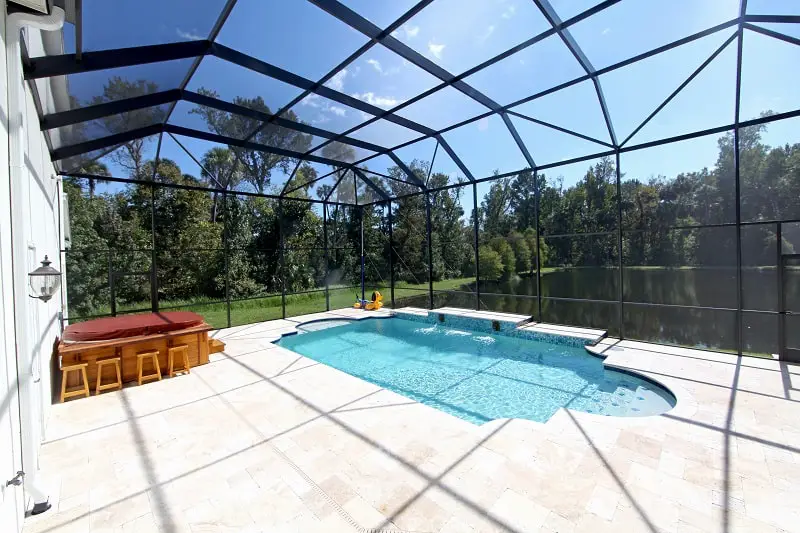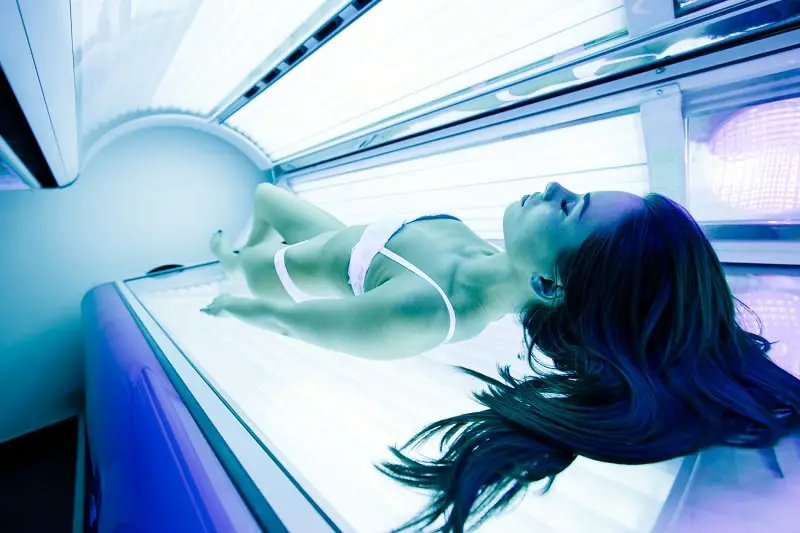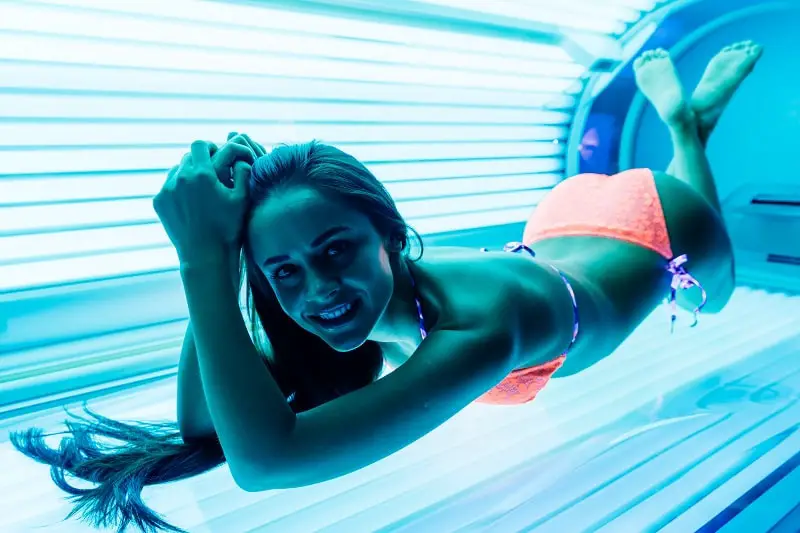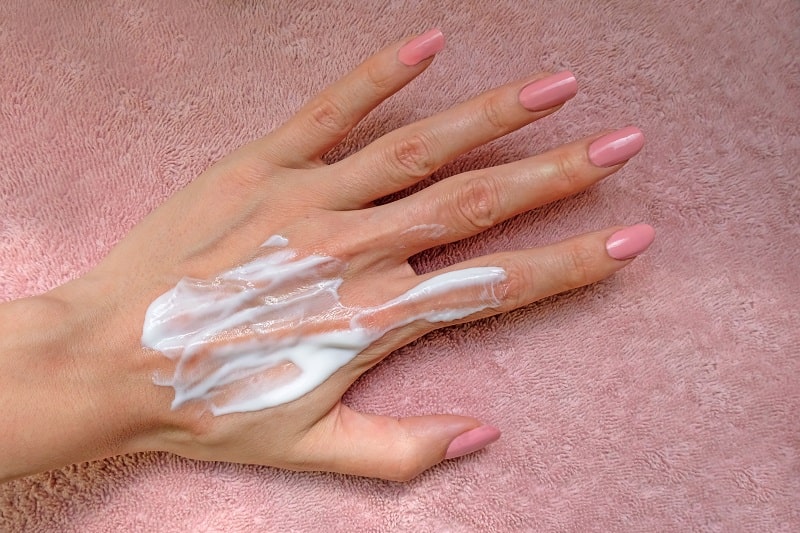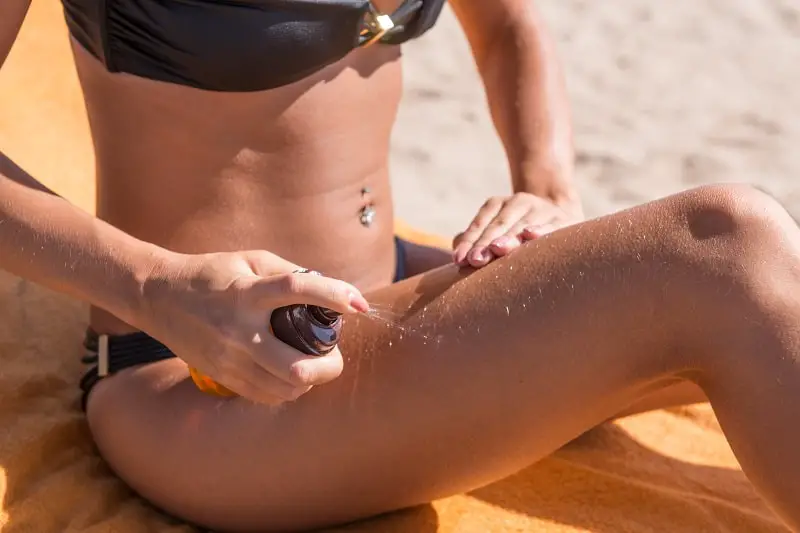Can you get a suntan through a pool screen? Yes! suntans can still be gained even beneath the fine mesh of a pool screen since their main job is to protect the pool and surrounding area from debris and bugs.
Some more benefits of a pool screen also include keeping out any little creatures (like snakes, possums, and birds) and larger ones, which may be more familiar to Southern states like Louisiana, Florida, Texas, and Alabama where finding an alligator cooling down in the family pool is all-too-real of a possibility.
Actually, as of 2016, at least one alligator is found in someone’s swimming pool in Florida every year. With a pool screen in place, the risk of a wayward gator chillaxing in your pool is just about eliminated.
Mesh pool screens offer great protection from a variety of different elements, although one of these is not the sun, nor its damaging UVA and UVB beams.
So then you may find yourself wondering: What is a screen good for? For answers to this and any other questions you may have about sun exposure through outdoor screens, continue reading below!
Can You Tan Through A Mesh Screen?
Tanning is totally possible to do through a mesh screen. Unfortunately, sunburns are also possible to get. So, it’s sort of a catch-22 situation. Talk about a bummer, right?
As they are, mesh screens do not filter any sort of harmful rays from the sun. A screen’s primary role is to stop debris, bugs, and other pests from entering the pool and the pool area. They are not meant to offer protection from ultraviolet radiation of any kind.
It is worth noting that whether beneath the cool shade of a pool screen or just hanging outside, sunscreen should always be worn to ward off any negative effects of sun exposure, like early aging, sunburns, and skin cancer.
Expert dermatologists generally recommend wearing a sunscreen of at least SPF 30 whenever outdoors which should then be reapplied at 1-2 hour intervals. Also: don’t let that overcast sky fool you!
Contrary to popular belief, the temperature outside has no influence over UV rays that can still get through the overhanging clouds. In fact, the “broken cloud effect” suggests that some clouds could actually funnel through higher UV levels than others around it.
This false sense of security tends to lead people to spend hours outside without proper sun protection, causing some seriously painful sunburns. Long story short, do yourself a favor and wear sunscreen whenever you find yourself out and about! It can save you in the long run.
Can UV Rays Go Through Screens?
Yes, UV rays can still certainly go through screens. Now depending on the material the screen is made of, there is a chance that 30-80% of the UV can be filtered. This type of protection is typically seen in patio screens that are made out of durable materials like fiberglass, aluminum, copper, bronze, and stainless steel.
Meanwhile, the insect-stopping Phifer mesh is the most popular choice for pool screens. Most of the time, the protection a screen can offer against UV rays largely depends on the type of area it is enclosing. Is it a sunroom? A veranda? An outdoor pool space? Oftentimes, the screen panels themselves can vary in material and degree of exposure, too.
Can You Get Vitamin D From The Sun Through A Screen?
Similar to the filtration of UVA and UVB rays as mentioned above, Vitamin D can also be absorbed through a screen. Albeit, the amount will naturally depend on the type of material the screen in question is made of, though you can still expect to get small doses.
Ultimately, sitting in front of a glass screen (like a window pane) will be the only way you won’t get Vitamin D, regardless of whether or not you’re bathing in that warm sunshine.
Can You Get Sunburn Through A Screen?
Yes, sunburns are possible to get through a screen. No matter the amount of time spent out in an enclosed screen space, you are constantly experiencing the effects of the sun on your skin. The largest separating factor here is the material of the screen as it can determine how quickly you actually end up burning.
For example, sunbathing behind a material that absorbs no UV rays (like Phifer mesh) will have you burn faster than sunbathing behind a material that absorbs 80% of UV rays (like fiberglass, or a solar screen). The bottom line is that a screen alone will not protect you from harmful UV rays.
Why Do Floridians Have Screens Over Their Pools?
There are tons of reasons why Floridians have screens over their pools, though the biggest one by far is that it is quite literally a law. Florida has a very strict law on this matter, stating that pools must have a barrier surrounding the pool area.
According to the Residential Swimming Pool Safety Act under 515.27 section 1(a), “The pool must be isolated from access to a home by an enclosure that meets the pool barrier requirements of s. 515.29” and as you can imagine, the barrier requirements listed beneath 515.29 align with most pool screens.
Other reasons Floridians have screens over their pools is to keep out the diverse wildlife of the region and to maintain appropriate water temperature during those scorching Florida summers. The average Floridian summer temperature can easily reach the high 90s, with a heat index between 103-110 degrees.
While pool screens don’t offer much protection in the way of UV rays, they do offer a decent guard against harsh light. That simple aspect in addition to their bug repelling capabilities, it is no surprise why pool screen enclosures have been making waves in Southern states.
Final Thoughts: Can You Get A Suntan Through A Pool Screen?
All in all, pool screens are useful additions to most outdoor spaces, whether for aesthetics or safety laws (we’re looking at you, Florida). They keep out bugs, debris, and other otherwise unwanted visitors. However, pool screens don’t usually protect against the sun’s UVA and UVB beams.
Since both radiation types can penetrate the material, tanning and/or sunburning is possible. That being said, there are some materials out there that do offer some type of protection against these harmful rays.
The efficiency of these materials depend entirely on the type it is, and you may discover that some panels work better in some places than in others. Because of the climate of Southern states in the U.S., screens of all kinds have been booming in popularity there, for verandas, sunrooms, and pools alike.

